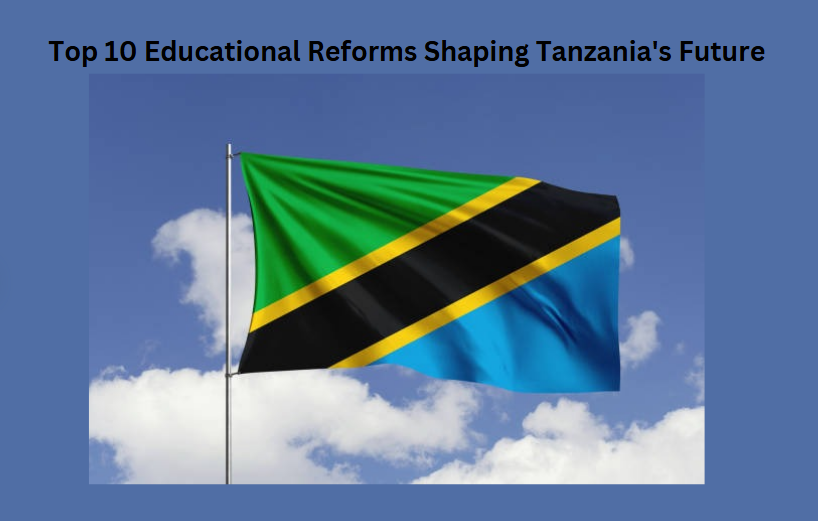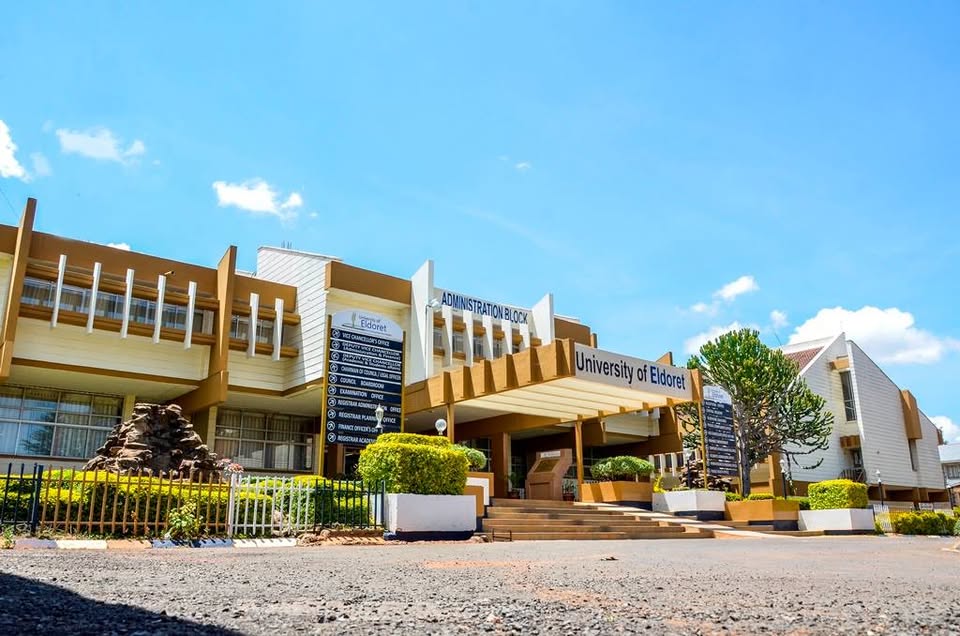Top 10 Educational Reforms Shaping Tanzania’s Future: Education is the cornerstone of any nation’s development, and Tanzania is no exception. Over the years, the Tanzanian government has made significant strides in reforming its education system, aiming to improve access, quality, and relevance.
These reforms are designed to create a more inclusive, equitable, and effective education system that will not only benefit students but also contribute to the nation’s long-term economic growth and social development. In this blog post, we’ll explore the top 10 educational reforms that are shaping Tanzania’s future and transforming the education landscape.

Top 10 Educational Reforms Shaping Tanzania’s Future
1. Universal Primary Education (UPE)
One of the most notable reforms in Tanzania’s education system is the introduction of Universal Primary Education (UPE). The government made primary education free in 2016, allowing every child, regardless of their background, to access education.
This policy has significantly increased enrollment rates, especially in rural areas, and reduced gender disparities in education.
By ensuring that every child has access to primary education, Tanzania is laying a strong foundation for future generations.
2. Expansion of Secondary Education
In addition to UPE, Tanzania has also focused on expanding access to secondary education. The government has invested heavily in building new secondary schools and improving existing ones, with a particular focus on rural areas.
This expansion has helped increase enrollment rates at the secondary level and provide more opportunities for students to pursue higher education.
The introduction of free secondary education in 2015 has also played a crucial role in making education more accessible to all.
3. Technical and Vocational Education and Training (TVET)
Recognizing the need for a skilled workforce to drive economic growth, Tanzania has made significant investments in technical and vocational education and training (TVET). TVET programs provide students with practical skills that are directly applicable in the job market.
By promoting technical education, Tanzania aims to reduce unemployment rates and address the skills gap in sectors such as construction, manufacturing, and agriculture.
4. Curriculum Reform to Focus on 21st Century Skills
In response to the changing demands of the global economy, Tanzania has undertaken curriculum reforms to ensure that students are equipped with the skills needed for the 21st century. The new curriculum emphasizes critical thinking, problem-solving, creativity, and digital literacy.
By integrating these skills into the curriculum, Tanzania is preparing its students to thrive in an increasingly competitive and technology-driven world.
5. Introduction of ICT in Education
Information and communication technology (ICT) has become a vital tool in modern education, and Tanzania has recognized its importance. The government has launched initiatives to integrate ICT into schools, providing students and teachers with access to digital resources and online learning platforms.
This initiative not only enhances learning but also helps bridge the digital divide, particularly in rural areas where access to technology has traditionally been limited.
6. Teacher Training and Professional Development
The quality of education is heavily dependent on the quality of teachers, and Tanzania has made significant efforts to improve teacher training and professional development. The government has introduced programs to train and equip teachers with the necessary skills and knowledge to deliver high-quality education.
Additionally, there is a focus on continuous professional development, ensuring that teachers stay up-to-date with the latest teaching methods and educational technologies.
7. Inclusive Education for Children with Disabilities
Inclusive education is a key focus of Tanzania’s educational reforms. The government has made efforts to ensure that children with disabilities have equal access to education. This includes the construction of special needs schools, the provision of assistive devices, and the training of teachers to support students with disabilities.
By promoting inclusive education, Tanzania is creating a more equitable education system that caters to the needs of all children.
8. Strengthening Higher Education Institutions
Tanzania has also focused on improving its higher education institutions to produce a skilled workforce capable of driving the country’s development. The government has increased funding for universities and colleges, improved research and innovation, and introduced new programs in fields such as engineering, medicine, and technology.
These reforms aim to ensure that graduates are equipped with the skills and knowledge needed to contribute to Tanzania’s economic and social development.
9. Promotion of Gender Equality in Education
Gender equality in education is a priority for the Tanzanian government. Efforts have been made to reduce gender disparities in education, particularly at the secondary and tertiary levels. Scholarships, mentorship programs, and awareness campaigns have been introduced to encourage girls to pursue education and challenge traditional gender norms.
These initiatives are helping to empower women and girls, providing them with the tools to break the cycle of poverty and contribute to national development.
10. Decentralization of Education Management
To ensure that education policies and reforms are effectively implemented at the grassroots level, Tanzania has adopted a decentralized approach to education management.
Local governments are now more involved in the planning and implementation of education programs, allowing for a more tailored approach that meets the specific needs of local communities. This decentralization is helping to improve the efficiency and effectiveness of the education system.
Conclusion
The educational reforms in Tanzania are setting the stage for a brighter and more prosperous future. By focusing on increasing access to education, improving the quality of teaching, and equipping students with the skills needed for the modern world, Tanzania is positioning itself for long-term growth and development.
These reforms are not only benefiting students but also contributing to the overall well-being of the nation. As Tanzania continues to invest in its education system, the future looks promising for the next generation of Tanzanians.
The ongoing educational reforms are a testament to the country’s commitment to building a strong, sustainable, and inclusive education system that will help shape Tanzania’s future for years to come.
Related articles
- NECTA Form Two Results 2024 Arusha Region
- NECTA Form Two Results 2024 Dar es Salaam Region
- NECTA Form Two Results 2024 Dodoma Region
- NECTA Form Two Results 2024 Iringa Region
- NECTA Form Two Results 2024 Kagera Region
- NECTA Form Two Results 2024 Kigoma Region
- NECTA Form Two Results 2024 Kilimanjaro Region
- NECTA Form Two Results 2024 Lindi Region
- NECTA Form Two Results 2024 Mbeya Region
- NECTA Form Two Results 2024 Morogoro Region
- NECTA Form Two Results 2024 Mtwara Region
- NECTA Form Two Results 2024 Mwanza Region
- NECTA Form Two Results 2024/2025Ruvuma Region
- NECTA Form Two Results 2024 Singida Region

